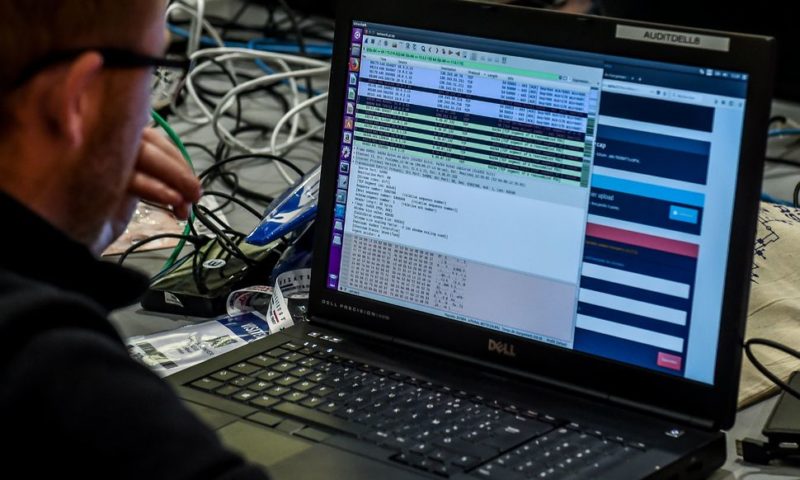Confidence varies sharply by country in government’s ability to handle attacks, according to a Pew study of 26 nations.
PEOPLE IN MORE THAN TWO dozen countries say future cyberattacks on key institutions, infrastructure and data are likely, but stark differences exist between nations over the public confidence in their individual government’s ability to successfully manage such events.
Those are among the findings of a report released on Wednesday by the nonpartisan Pew Research Center. Pew surveyed people in 26 countries and found that nearly three-quarters of all respondents say a future cyberattack will allow hackers to access sensitive national security information. Nearly 7 in 10 respondents say a cyberattack will damage their country’s public infrastructure, while 61 percent say a cyberattack will tamper with future elections.
Individuals in some countries say a major attack is more likely than people in other countries, but the report notes that there’s a general consensus among all 26 countries that an attack is eminent.
Differences between countries are especially evident in public confidence over government preparedness for a large-scale cyberattack. In the survey, Latin American countries were the least confident in their government’s abilities, with only 9 percent of Argentines and 16 percent of Brazilians saying their government could handle a major cyberattack.
Russians and Israelis were far more confident, with 67 percent and 73 percent of respondents, respectively, saying their government is prepared. Overall, nearly half of respondents across all the countries said their government is unprepared.
“These countries really aren’t expecting their government to handle these types of attacks well,” says Jacob Poushter, Pew Research Center’s associate director of global research and co-author of the study.
He adds that even in Japan, home to one of the world’s largest economies, more than half of citizens say the government isn’t ready for a cyberattack.
“The sort of disconnect between the likelihood of these attacks (as perceived by the public) and the government not being prepared is a major finding in this study,” Poushter says.
Also of note: Anxieties are especially pronounced about the possible hacking of sensitive government information. Half or more of respondents in every country say that such a cyberattack is likely. Concerns are especially strong in the U.S., South Korea, Spain, the Netherlands, Japan and Tunisia, where at least 80 percent worry over such a hack. People surveyed in five Asian nations expressed the same level of concern.
In the 10 European countries surveyed, a median of 75 percent of people surveyed say national security hacking is likely. A new data privacy law went into effect in 2018 across European Union member states.
Differences also formed along generational lines in the Pew survey. Younger people are less worried about potential attacks on infrastructure in many Western countries. The gap in concern is especially pronounced in Sweden, where 53 percent of those ages 18 to 29 say an attack on infrastructure is likely, compared with 82 percent of Swedes ages 50 and up. Double-digit gaps also occur in Canada, the U.S., Australia and most Western European countries polled.
Notably, people supporting the party currently running their government are more likely to say their country is ready for a cyberattack than those who identify with another party. In the U.S., for example, 61 percent of Republicans and Republican-leaning independents in the survey say the government could handle an attack, compared with less than half of Democrats or Democratic-leaning independents, according to Pew.
Poushter notes the study included a number of countries that recently held elections or will hold elections this year. In Nigeria and Canada, which will both hold elections in 2019, 60 percent of respondents said they believe a cyberattack will tamper with future elections.
“There’s still a lot of worry about that fundamental aspect of democracy,” Poushter says, referring to the fact that so many people think an election will be hacked and the public won’t decide it’s leader.
The Pew study surveyed 27,612 people in the 26 countries, and was conducted from May 14 to Aug. 12 in 2018.

